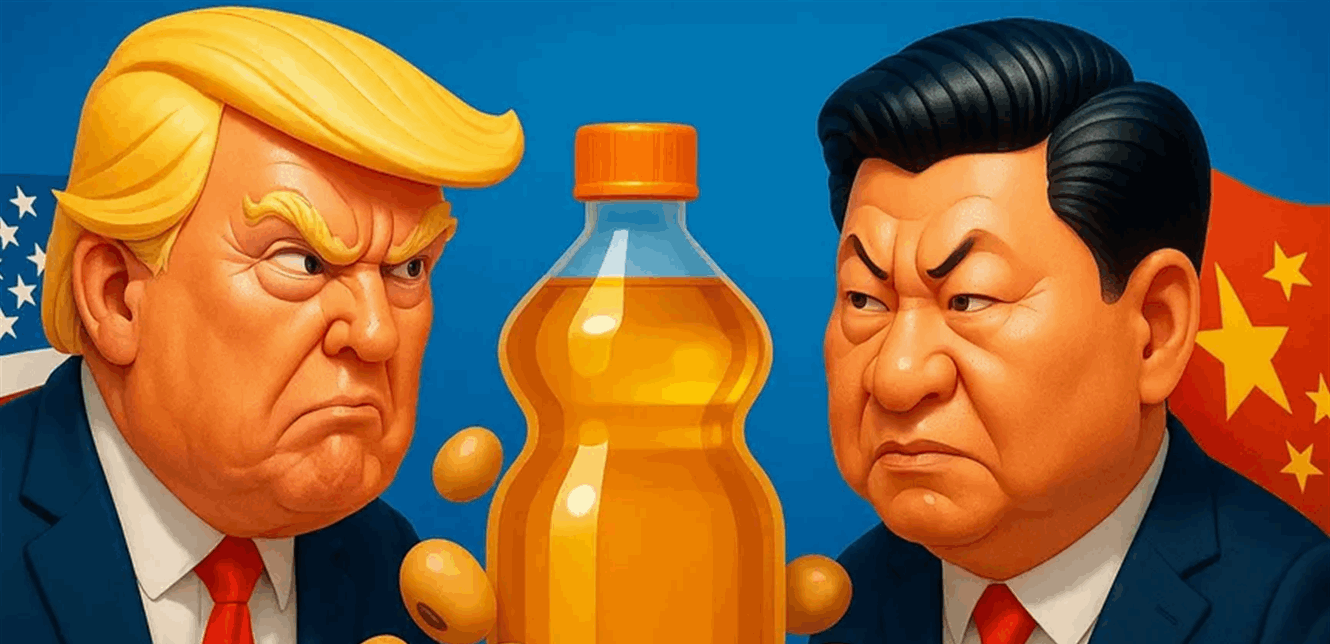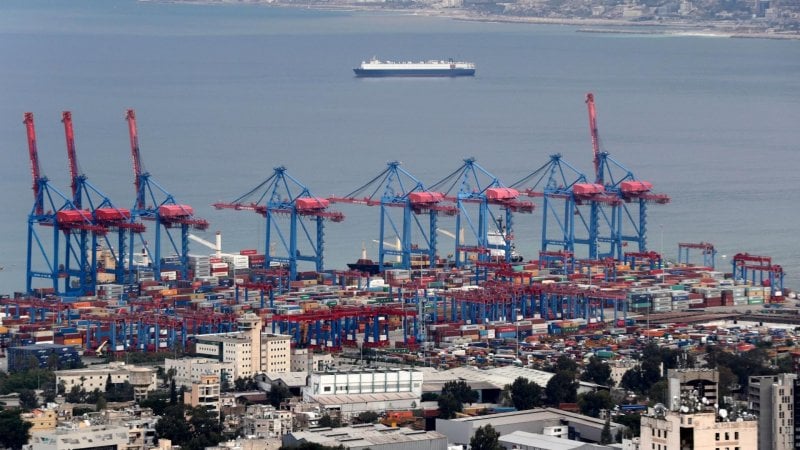
A new front is igniting in the trade war between Washington and Beijing, this time centered on cooking oil and soybeans. From the fields of the American Midwest to Chinese ports, supply routes are shifting and alliances are being reshaped at the tables of politics, while opportunities loom for other countries to seize shares of a massive agricultural trade.
The spark began in 2018 in Donald Trump’s first term, when Beijing responded to American tariffs with a 25% tariff on American soybeans. Purchases quickly collapsed, and in 2019 China suspended agricultural imports from the United States, exacerbating losses for farmers who historically relied on the Chinese market, which imported about $12 billion of American soybeans in 2017. On the opposite front, Chinese cooking oil exports to America have declined sharply since December 2024 after the abolition of a 13% tax rebate for exporters, with shipments falling 60% in a single month. In January 2025, the Biden administration excluded fuel made from imported oils — including Chinese oil — from tax exemptions, before Trump recently escalated, threatening to end cooking oil-related business with China, considering Beijing’s reluctance to buy American soybeans an “economic act of hostility.”
Targeting soybeans has a direct impact on American farmers due to their reliance on Chinese demand. In 2024, American exports to China reached 26.8 million metric tons worth $12.64 billion (about 51% of total American soybean exports). However, the first seven months of 2025 saw a sharp decline: Chinese imports of American soybeans fell 39% in volume to 5.9 million tons, and 51% in value to $2.5 billion, recording the lowest levels since the 1990s. In contrast, Trump renewed the idea of using tariff revenues to finance direct support for farmers.
Brazil and Argentina filled the void: China imported 6.5 million tons of Brazilian soybeans in December, while Argentina’s exports from the 2024/2025 harvest are estimated at about 10.5 million tons, the highest level in seven years. Africa is also advancing to the forefront through Chinese investments of hundreds of millions of dollars in soybean cultivation and processing in Angola, Tanzania, and others, including deals worth $350 million in Angola to develop 100,000 hectares for soybeans and corn.
As for the cooking oil “revenge,” it seems to have a limited impact. The American threat primarily targets used cooking oil (UCO) used in biodiesel and sustainable aviation fuel, while edible oil constitutes a small proportion of exports to the United States. Between January and July, Chinese oil sales in America reached 387,000 tons, down 43% from 684,000 tons a year ago. In terms of value, Washington imports about $1.2 billion of Chinese cooking oils compared to more than $12 billion of American soybean exports to China in 2024 — almost ten times more — which reinforces the sensitivity of the soybean file compared to the oil file.
So far, the global impact seems limited. Chinese exporters are redirecting shipments to Europe and Asia; exports to Singapore rose 15% this year to $537 million and jumped to the Netherlands by 131.5%. Estimates from banks and research houses indicate that the greatest pressure is on the American market: “Rabobank Research” believes that a renewed war may temporarily support prices globally, but it may reduce American soybean prices by $1.52 per bushel in the long term and reduce the planted area by about 5 million acres, which will affect farmers’ income. Despite Brazil’s dominance, analysts warn of a potential gap between 2 and 5 million tons by the end of the season if all of China’s needs cannot be covered, which may trigger sporadic disruptions in food chains.
In conclusion, China is holding on to the heavy and impactful soybean card, while Washington is brandishing the cooking oil card with its limited impact. In between, new supply maps are emerging, giving other producers opportunistic gains, while the American farmer pays the biggest price if the conflict is prolonged. (Al-Sharq)
source: 961 today

















